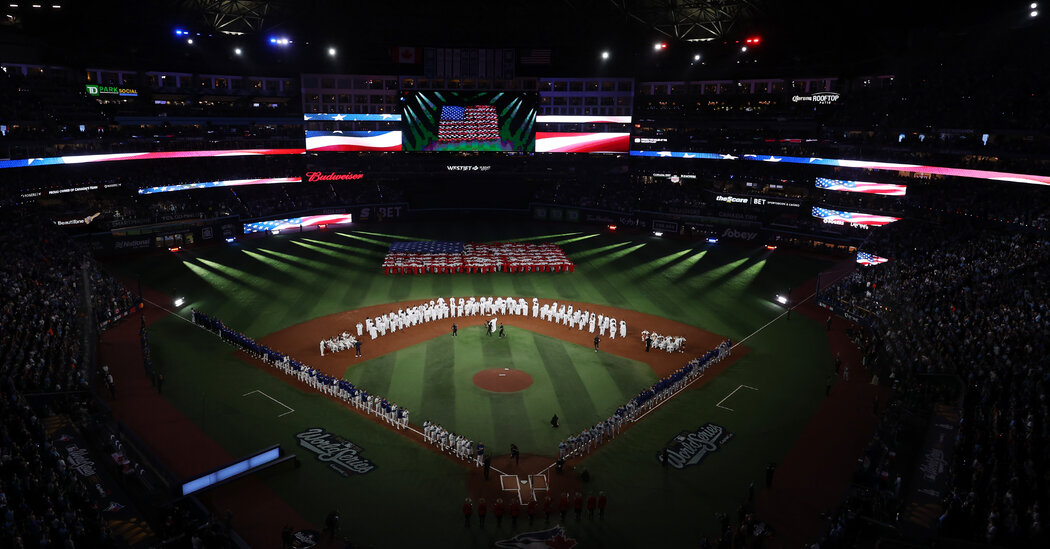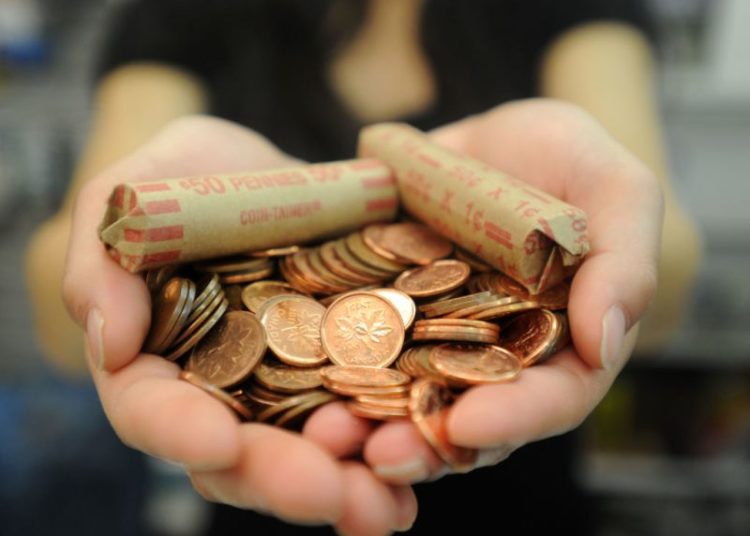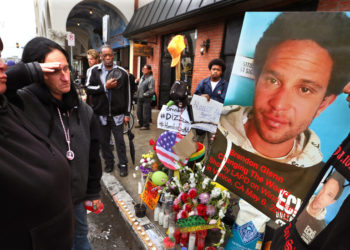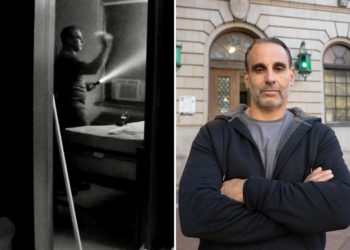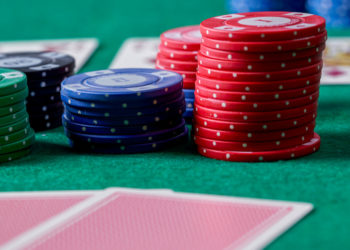Don’t worry about Canada. At least not today. The national mood is ecstatic.
The World Series began on Friday night in Toronto, featuring the Blue Jays and the Los Angeles Dodgers, with a political subplot simmering in the background between the United States and Canada — a relationship frayed by months of tariffs, retaliatory tariffs and threats to Canada’s sovereignty.
The Blue Jays, Canada’s only Major League Baseball team, haven’t played for a championship since they won in 1993, and that has kept the World Series within America’s borders since. But on Friday night, any tension between the countries felt firmly contained to the baseball field.
The scrappy ball club, completing a magical pennant run through the New York Yankees and the Seattle Mariners, have become “Canada’s team.” They are up against the defending champions, an extravagant, heavily fortified glamour team led by the megastar Shohei Ohtani, who pitches and hits equally well.
In the sixth inning, the Toronto pinch-hitter Addison Barger hit a grand slam that stunned America’s baseball fortress. The 11-4 win by the Blue Jays gave them a 1-0 lead in the seven-game series. Game 2 will be on Saturday night.
Late on the eve of Game 1, President Trump announced that he was cutting off all trade negotiations with Canada. He was reacting to an ad, paid for by the province of Ontario, that featured Ronald Reagan criticizing tariffs in a 1987 radio address.
Mr. Trump posted on Truth Social that the ad misrepresented Reagan’s words. The ad reproduced Reagan’s quotes accurately, but changed the order he said them.
In certain circles, politics may have been the day’s roiling undercurrent, but in the streets and at the field level, it was eclipsed by Canada’s ungovernable love of the Blue Jays and a thrilling outcome that many American baseball pundits did not expect.
Hundreds of people lined up outside the Rogers Centre several hours before the gates opened. Once inside, it became immediately apparent that the night would be about baseball, not politics.
Heckling the Dodgers players — except for the former Blue Jays player Teoscar Hernández, who was cheered — was as rough as it got among the almost 45,000 fans.
Overt politics was absent but national unity was an early overtone.
People in the sellout crowd sang “O Canada” at the tops of their lungs, but they almost as enthusiastically belted out the triumphant last two lines of “The Star-Spangled Banner” before roaring and applauding the musician Pharrell Williams and the Voices of Fire gospel choir.
On the field, performers dressed in red or white arranged as the stripes of the American flag. As one anthem turned to the other, the formation shed its blue sheet with white stars and reconfigured as the Canadian flag with its red maple leaf.
The symbolism was unmistakable and powerful. So were the underdog Blue Jays, who blew apart the Dodgers on Barger’s grand slam, sending the stadium into a frenzy.
“It was just madness,” he said.
In the seventh inning, Ohtani would hit his first career World Series home run but was otherwise tamed on Canadian soil. By the ninth inning, Blue Jays fans were chanting to Ohtani, who had once entertained signing with the team: “We don’t need you! We don’t need you!”
“The crowd was electric tonight,” said the manager of the Blue Jays, John Schneider. “They have been waiting a long time for a World Series to come back here.”
Prime Minister Mark Carney of Canada, who had a muted reaction to Mr. Trump’s trade threat, telling reporters that he was prepared to resume talks when his American counterpart was ready, visited the Blue Jays’ practice on Thursday and joked that Trump was afraid to bet on the Dodgers.
“The whole country is behind this team,” Carney, said, predicting Toronto’s victory in six games.
Elsewhere, with a choice between political tension and focusing on baseball, some politicians kept matters on the lighter side.
Premier Doug Ford of Ontario and Gov. Gavin Newsom of California have a bet: If the Blue Jays win, Ford said he will send maple syrup in a tin can (“the way it’s meant to be enjoyed”), and if the Dodgers win, Newsom said he will send a bottle of California red.
“Do me a favor,” Newsom said. “Do you think you can put it on the liquor store shelves?” It was a reference to Ontario pulling all U.S.-manufactured liquor from stores in March, when Trump first announced tariffs on Canadian goods.
“I don’t think so, buddy,” Ford said. “Talk to your friend in the Oval Office.”
The National Hockey League star Connor McDavid of the Edmonton Oilers, who grew up in suburban Toronto, told reporters on Thursday that Canadians are in a unique position.
“M.L.B. and the N.B.A. only have one team in Canada, and when you only have one, it brings the whole country together,” he said. “That’s what sports is supposed to do. It’s supposed to bring people together.”
No doubt the World Series means everything to Dodgers fans, but in Canada it means everything to a whole nation. After Barger’s grand slam, many fans were crying.
“Signing here, I didn’t necessarily understand one team for an entire country,” said Kevin Gausman, Toronto’s Game 2 starting pitcher. “Now that I’ve been here for four years, I really understand how much they love us, how much they support us, how much they want us to succeed.
“We’re ecstatic,” Gausman continued. “The love that they give us, we feel it out there, and they have turned this place into such a crazy environment, such a fun place to come to work every day. And really, you drive around this city right now, it’s electric. Everybody’s talking about the Blue Jays.”
Shawna Richer is an editor working on coverage of sports in America.
The post Canada-U.S. Tensions Stay on the Ball Field as Blue Jays Stun Dodgers appeared first on New York Times.
